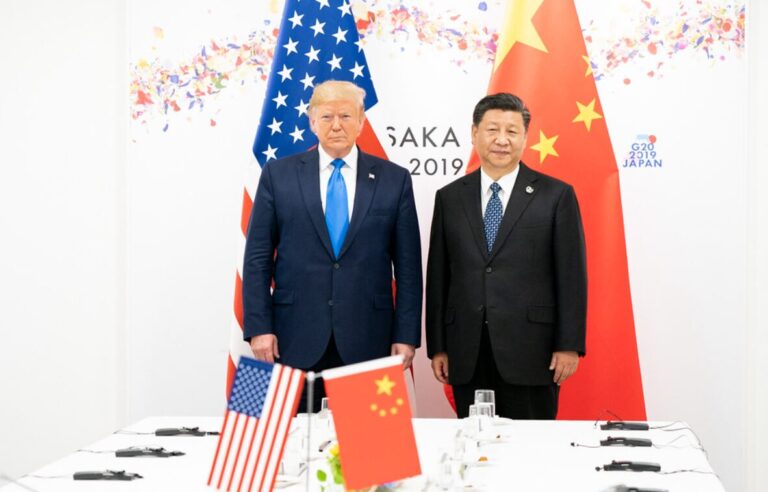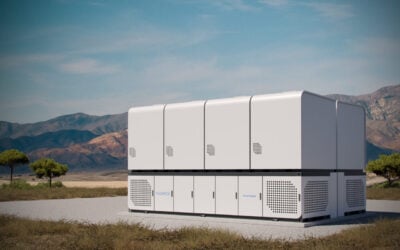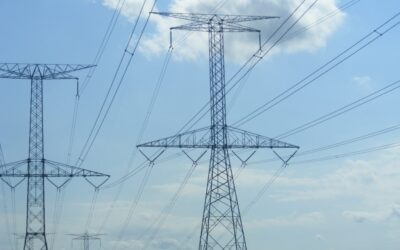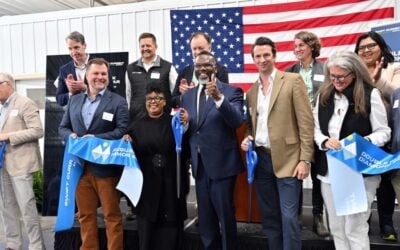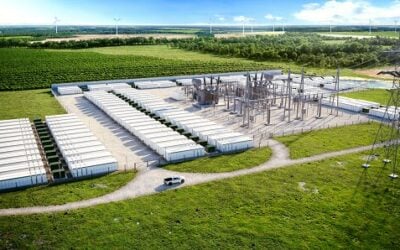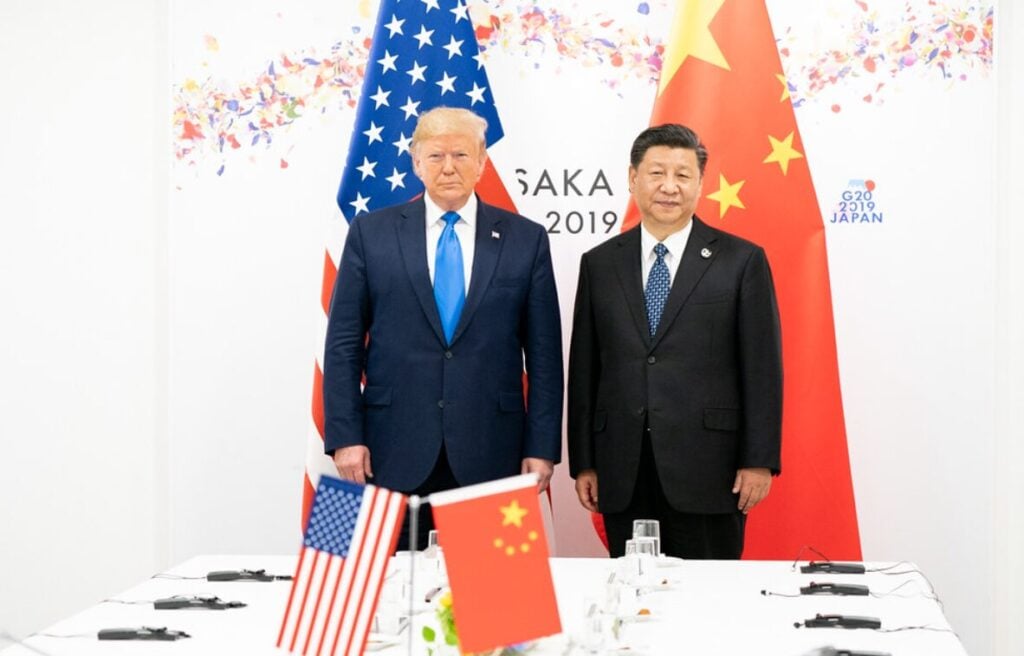
The US and China have announced a 90 day ‘pause’ on their huge reciprocal tariffs while they continue negotiations, with the effective tariff on BESS more than halving to around 60%.
In what was the two countries’ first joint statement on trade in years yesterday (12 May), the White House said they have agreed to lower their current tariffs for a 90 day period which expires on 1 July. Global stock markets and commodities jumped in response.
This article requires Premium SubscriptionBasic (FREE) Subscription
Enjoy 12 months of exclusive analysis
- Regular insight and analysis of the industry’s biggest developments
- In-depth interviews with the industry’s leading figures
- Annual digital subscription to the PV Tech Power journal
- Discounts on Solar Media’s portfolio of events, in-person and virtual
Or continue reading this article for free
Specifically, the US will reduce its ‘Liberation Day’ tariffs announced on 2 April from 125% to 10% while China will reduce its retaliatory ones down to 10% too (those had prompted a retaliatory hike in the US’ tariffs, having initially been 34%).
What this means is a reduction in US tariffs on all Chinese goods from 145% to 30%. That 30% is made up of the two separate 10% tariffs announced prior to 2 April and the temporarily lower 10% Liberation Day tariff.
That means an effective tariff on battery energy storage systems (BESS) or batteries for BESS of 40.9% right now and 58.4% from 1 January 2026, Energy-Storage.news calculates.
This is based on a pre-existing 3.4% tariff on all lithium-ion batteries globally plus a Section 301 tariff on batteries from China, currently 7.5% and set to increase to 25% in January 2026 for BESS, and already in place for EVs.
Clean Energy Associates’ senior policy analyst Christian Roselund meanwhile posted on LinkedIn that the effective tariff on BESS will be 65%. Energy-Storage.news has reached out to the company for comment on the news.
Roselund also cautioned that this week we may see the result of the AD/CVD petition by the American Active Anode Material Producers (AAAMP) calling for huge duties on active anode material from China, which would affect batteries and BESS.
Energy-Storage.news had been told that the 145% tariff meant that virtually no US BESS projects have been able to be finalised and financed since 2 April, so this reduction, even temporary, could unblock some of them. Some developers and owners may opt to wait out the 90 days to see what final agreement is made, while others may decide to push forward on the basis that tariffs will either increase or not change substantially.
Held alongside the Battery Show Expo Europe in Stuttgart, Energy Storage Germany spotlights Germany’s rapid ascent in the European storage sector. Once driven by residential demand, utility-scale projects are now surging, with 184 MW added across 44 projects in 2023. With nearly 16 GWh of capacity installed in the first half of 2024, Germany is set to integrate 24 GW of utility-scale energy storage by 2037, creating substantial opportunities.
The 2024 Summit included innovative new features including a ‘Crash Course in Battery Asset Management’, Ask-Me-Anything formats and debate-style sessions. You can expect to meet and network with all the key industry players again in 2025 from major US asset owners, operators, RTOs and ISOs, optimizers, software and analytics providers, technical consultancies, O&M technology providers and more.
InterContinental London – The O2, London, UK
This isn’t just another summit – it’s our biggest and most exhilarating Summit yet! Picture this: immersive workshop spaces where ideas come to life, dedicated industry working groups igniting innovation, live podcasts sparking lively discussions, hard-hitting keynotes that will leave you inspired, and an abundance of networking opportunities that will take your connections to new heights!
Read Next
Uncertainty over trade tariffs has caused Fluence to lower its revenue and EBITDA guidance, although CEO Julian Nebreda said the company is “optimistic about the future of energy storage.”
The Illinois Commerce Commission (ICC) staff has announced recommendations for the state’s first energy storage procurement.
Georgia Power has begun construction on 765MW of new battery energy storage systems (BESS) across Georgia, US.
Swift Current Energy has encountered a major stumbling block in developing a standalone BESS in Virginia.

